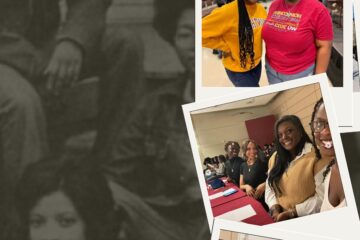Science majors take on the world outside of Winthrop
Eager to experiment in the real world, Winthrop study abroad students leave the science labs for real-life experience in other countries. Sydney Amodio currently studies in the Peruvian Amazon of South America. Her program focuses on conservation science, tropical ecology, political ecology and the Amazon culture. Under Dr. Rafael Mendoza, she will be conducting research to compare the uses and perceptions of rivers between the indigenous Maijuna community in Sucusari and a rural roadside population in Cahuide.
Although this adventurous exploration poses new opportunities for research and knowledge, Amodio and her fellow classmates risk safety and well-being under the Amazon’s blanket of humidity.
“The Amazon is a dangerous environment– there are deadly snakes, disease-carrying mosquitoes and a number of other dangerous animals. I have to be careful not to normalize this environment and get too comfortable. We have precautions to deal with mosquitoes which can be uncomfortable such as wearing long sleeves on the jungle trails despite the heat, sleeping in bug nets, and loading up on DEET,” said Amodio.
With a shared understanding of mosquito precautions, Lindsey Hawkins, an education graduate from Winthrop, currently teaches in Santiago, Dominican Republic. Her experiences abroad share many commonalities with Amodio’s.
“At school, I am pushed and challenged to be a better teacher and to adapt to the new curriculum, system and culture of my students. The language barrier is very difficult, especially when I barely knew any Spanish. Sometimes I get frustrated with myself with I am trying to talk and I mess up a lot,” said Hawkins.
Accustomed to the weather of Rock Hill, South Carolina, Amodio and Hawkins now live in a new South where heat and humidity takes on new meaning.
“Nothing truly dries here,” said Amodio. “I’ve dealt with moldy pillows and musty clothes. It is difficult to complete assignments in the heat and oftentimes the power goes out for days.”
Smiling through the sweat of hot days and new barriers, whether they be mosquito or language, both girls share an obvious affection for their temporary homes.
“I love living here. It’s like getting to live out of my comfort zone. Every day, I learn something new about myself or the country or the culture. I get to meet people who grew up in a completely different culture than me. They are amazing people who were raised to serve other people. On the weekends, I get to explore the country and go on awesome adventures,” said Hawkins.
Amodio gushed about her experiences too, sharing many pictures of the beautiful Amazon and Andes landscapes. Even through WhatsApp, a recap of her night on a boat in the Sucusari River came to life with her words of a star-lit sky and a sloth hanging from a tree along the way. She not only plans to bring home new scientific knowledge but also the experiences and feelings that make her major forever worthwhile.
“Class experiences like these are something you cannot find in a typical college-setting. I find the field activities to be exciting and unique. You never know what each day will hold. One day you’re dragging transect tape through the thick of the jungle for data collection and the next day, you’re visiting a manatee rehabilitation center,” Amodio said.




